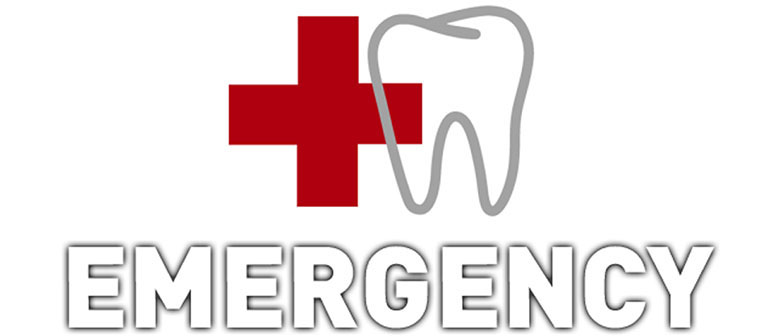
You never know when an emergency will strike. A dental emergency can strike in the middle of the day or night. You might be soundly sleeping when all of a sudden, you are awakened by an unbelievable pain in your mouth. You could be out jogging and unexpectedly stumble, fall, and hit your mouth on something that causes agonizing pain. Or, you may have been putting off seeing your dentist on a regular basis because you have been too busy. For some of you, months turn into years before you realize you haven’t seen your dentist and now your teeth are hurting, and you don’t know why.
Common dental emergencies include: Gum abscesses, pulpal abscesses, swelling, bleeding, broken teeth, pain that comes with biting that can often be related to infection or a cracked tooth, inflammation around wisdom teeth, trauma to a tooth from an accident. Emergencies may involve swelling, bleeding and severe pain from a variety of causes. Injuries to the mouth may include teeth that have been knocked out, forced out of position and loosened or fractured. In addition, lips, gums or cheeks can be cut.
Immediately. Getting to a dentist within 30 minutes can make the difference between saving or losing a tooth. Most of the time, the emergency dentist can at least relieve the pain you are in while you are there. This may be with pain medication, or providing suggestions such as cold and hot compresses on the mouth until you are able to get the dental procedure required.
It is important to have treatment from your dental professional for diagnosis and treatment of the problem that caused the emergency. Many people think time will resolve the problem. Unfortunately, that is not likely to happen. Oral injuries are especially painful and should be treated by a dentist as soon as possible.
Immediately call your dentist for an emergency appointment. Handle the tooth by the crown, not the root. Touching the root (the part of the tooth below the gum) can damage cells necessary for bone reattachment. Gently rinse the tooth in water to remove dirt. Do not scrub. If possible, gently place the clean tooth in the socket to keep it moist. It is important not to let the tooth dry out. If it is not possible to store the tooth in the mouth of the injured person, wrap the tooth in a clean cloth or gauze and immerse in milk or saliva.
Attempt to reposition the tooth to its normal alignment using very light finger pressure, but do not force the tooth. Bite down to keep the tooth from moving.
Rinse mouth with warm water. Use an ice pack or cold compress to reduce swelling. Use ibuprofen, not aspirin, for pain. Immediately get to your dentist, who will determine treatment based on how badly the tooth is broken. Only a dentist can tell how bad the break is.
Minor fractures can be smoothed by your dentist or simply left alone. Another option is to restore the tooth with a composite restoration. In either case, treat the tooth with care for several days.
Moderate fractures include damage to the enamel, dentin and/or pulp (nerve and other live tissues). If the pulp is not permanently damaged, the tooth may be restored with a full permanent crown. If damage to the pulp does occur, further dental treatment will be required.
Severe fractures often mean a traumatized tooth with slim chance of recovery.
Injuries to the inside of the mouth include tears, puncture wounds and lacerations to the cheek, lips or tongue. The wound should be cleaned right away with warm water, and the injured person taken to a hospital emergency room for the necessary care. Bleeding from a tongue laceration can be reduced by pulling the tongue forward and using gauze to place pressure on the wound.
Pack an emergency dental-care kit, including: Dentist’s phone numbers (home and office), a handkerchief, gauze, a small container with a lid, Ibuprofen – not aspirin. Aspirin is an anticoagulant, which may cause excessive bleeding in a dental emergency.
Of course, regular dental visits are crucial to everyone’s oral health, but people with a dental emergency need to know who they can turn to. At AMG Dental Group, we accept walk-in patients. We welcome our Northern Palm Beach County neighbors who suddenly find they have a dental emergency and need immediate care. You can turn to our dental office. Call Dr. Adrian Guerra, DDS today at 561-844-6146 to learn how our emergency dental services can help.

